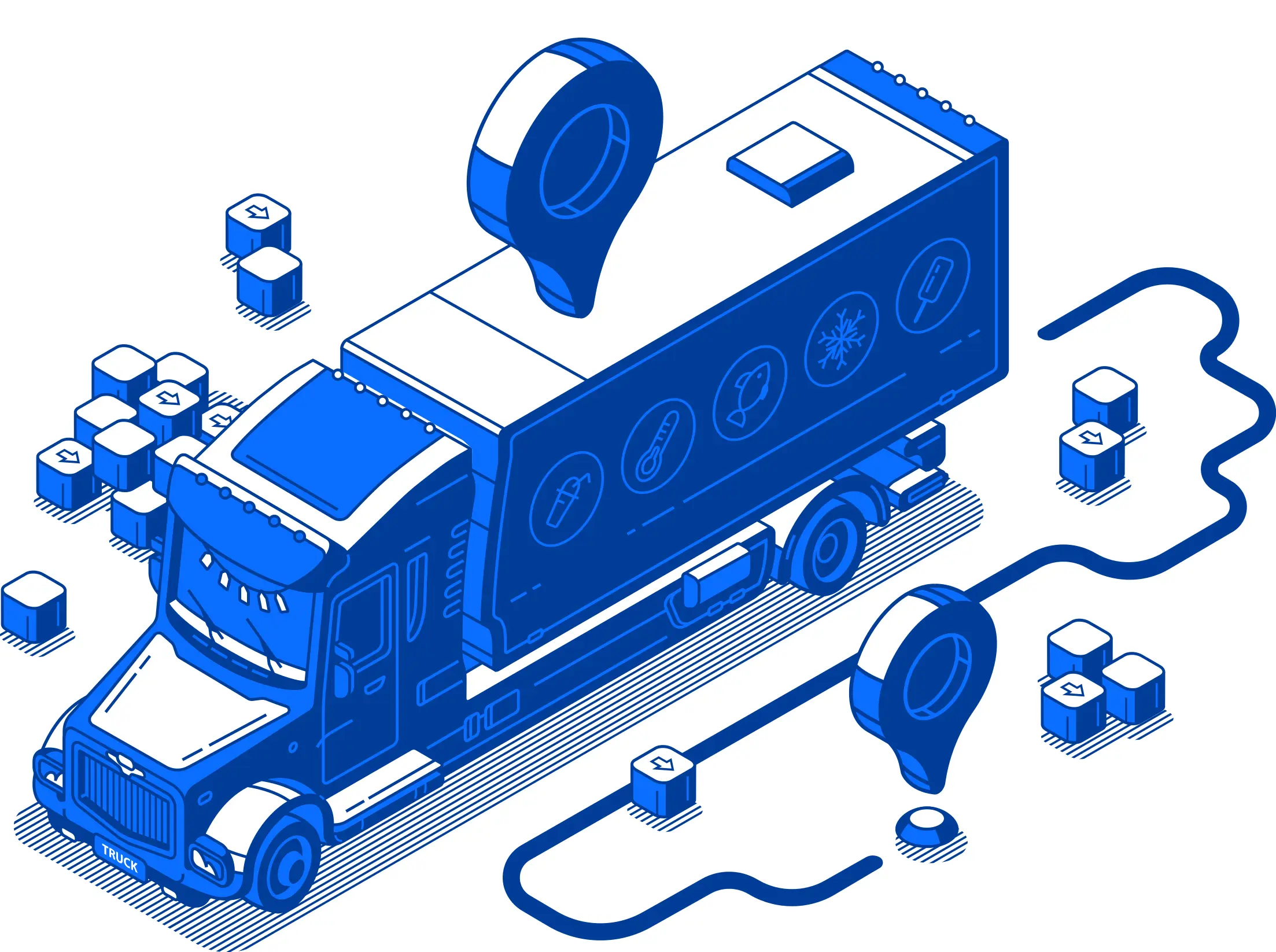When a trucking company owns several trucks to transport goods within a state, between states, or across the country, that company has a large fleet. The fleet might be a mix of vans, cabs with trailers, or box trucks. It doesn’t matter what is in the fleet; it matters that there are lots of vehicles.
Law Insider defines a large fleet as a minimum of 2,000 trucks. Everyone knows UPS. According to the FMCSA, UPS has 112,386 vehicles in its U.S. fleet. That’s the perfect example of what a large delivery fleet is.
You might think a larger trucking company of this size would be fine, but no one is safe from emergency cash flow problems. In 2023, several large fleet operators experienced plummeting revenues. Yellow Corp, one of the biggest in the industry, entered bankruptcy and liquidation. All it takes is one or two unpaid invoices to strain your finances. It’s not ideal when insurance costs skyrocket or sudden repairs become necessary to dozens of trucks at the same time.
The Risks of a Cash Flow Crunch
When you cannot pay your bills on time, two things happen. First, you start incurring late fees. Those late fees add up quickly. Second, every late payment could be reported and show up in your business credit report. Typically, bills that are paid a few days late won’t affect you, but if you pay a month late or can’t pay at all, it’s going to hurt your credit rating.
If you’ve dealt with several cash flow crunches and it’s impacted your credit score, you’re going to have a much harder time qualifying for business essentials like new truck loans, rent, business loans, and credit cards. The difference can be alarming.
Using the current average business loan interest rates (Bankrate 1/11/24), the ranges are 5.75% to 12% for a bank business loan, 11.5% to 16.5% for an SBA loan, or 25% to 99% for a bad credit business loan. Here’s what your monthly loan payment would be if you borrowed $100,000 for 10 years.
- Bank business loan at 5.75% to 12%: $1,097.69 to $1,434.71
- SBA loan at 11.5% to 16.5%: $1,405.95 to $1,706.42
- Bad credit business loan at 25% to 99%: $2,274.93 to $8,250.61
The lower your credit score, the worse it is for you. It’s impossible to grow your business effectively when you’re losing thousands to interest charges each month. You’re wasting money that could be put into your business and not a financial institution’s coffers.
This is one problem. What about your reputation? If you have brokers or shippers looking into working with you, that work is needed to grow your business. However, they check your business credit rating, and you look like too much risk. They move to your competitor. Being able to pay your bills also ensures potential clients don’t quickly discount you as high risk.
If you experience a cash flow problem, will you be able to pay your drivers, office staff, and yourself? Failing to pay wages can lead to fines that drive you farther into debt. It’s also hard to maintain workers when you continually pay them later than promised.
Understanding Large Fleet Factoring
Instead of risking your credit with late payments when you’re not being paid as quickly as you’d like, freight factoring is available. Work with a freight factoring company and factor your fleet’s invoices.
Factoring is a service where a company purchases your unpaid invoices for a fee. When you have a large fleet, that fee is incredibly low. Even with a smaller fleet, a freight factoring arrangement’s fees are lower than interest on a business loan. Here are the basics of how it works.
- Schedule work with a broker, shipper, or client.
- Pick up the load as scheduled and get the signed bill of lading that the load is on your truck.
- Deliver the load to the drop-off point and get it signed that you’ve dropped it off.
- Take your bill of lading and upload it to a freight factoring app.
- Wait for approval.
- Payment is sent to your bank or gas card.
You have the money, minus the factoring fee, which ensures you always have a strong cash flow. You don’t have to generate an invoice and mail, fax, or email it to your client. You don’t have to sit back and wait for payment. With some companies taking weeks or months to pay invoices, you can go a long time between a completed delivery and payment.
That’s what happens if everything goes well. If you’re waiting for payment and the broker or shipper never pays, you could be out of that money. If a company goes into bankruptcy or becomes insolvent, you can claim the unpaid debt and hope you get paid, but there’s no guarantee.
There are two main forms of large fleet factoring. You could enter into a recourse arrangement, which means you have to repay the money you were advanced if your client doesn’t pay the invoice. If you have a lot of savings built up, this is ideal as the fees are much lower. Use free business credit checks to avoid signing up for work with a company that has a negative credit rating.
The other option is a non-recourse agreement. That means you get paid and don’t have to repay it if your client becomes insolvent and doesn’t pay an invoice. Non-recourse arrangements cost more in fees, but it’s better protection if you don’t have a large store of cash in your savings account.
Is Factoring Better Than the Alternatives?
One of the best ways to protect your trucking company is by factoring invoices. Do you pay a fee? Yes. Is that fee excessive? Not at all.
Rates for a large fleet are incredibly low. It’s far less expensive to factor your invoices than it is to use a credit card or take out a business line of credit. One problem some trucking companies fell into is that they took out small business loans during the pandemic and couldn’t afford to repay them when the repayments started.
Saint John Capital’s history in the trucking industry started in 1997. We have decades of experience in helping trucking companies, both large and small, grow their businesses. Large fleet factoring is one of the best ways to ensure this happens.
With our Click & Pay API, free business credit checks, and same-day payments, your large fleet trucking company has the tools in need to stay current with payroll, insurance, licensing, permits, and truck expenses. Sign up free and let Saint John Capital know more about how we can help you maintain a strong cash flow.











